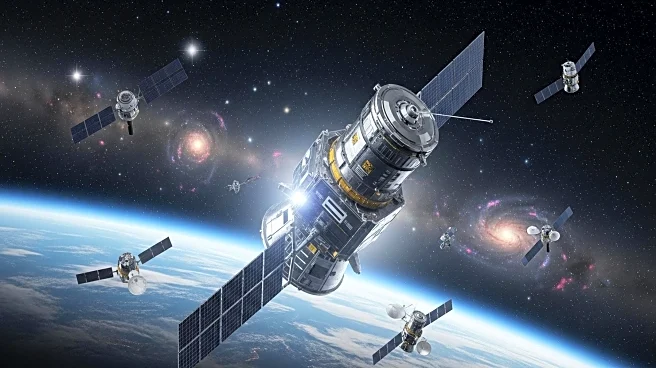What is the story about?
What's Happening?
In a significant development for satellite internet services, SpaceX and Amazon have conducted major launches to expand their respective networks. SpaceX launched two Falcon 9 rockets on September 25, deploying dozens of Starlink satellites for global internet coverage. Meanwhile, Amazon's Project Kuiper saw the launch of 27 satellites via United Launch Alliance's Atlas V rocket, marking a step forward in its broadband constellation. These launches are part of a broader effort by both companies to provide high-speed internet access worldwide.
Why It's Important?
The expansion of satellite internet networks by SpaceX and Amazon is set to revolutionize global connectivity, offering high-speed internet access to remote and underserved regions. This competition between two major tech giants highlights the growing importance of satellite technology in bridging digital divides. The rapid deployment of these networks also raises concerns about orbital crowding and the need for effective space traffic management.
What's Next?
Both SpaceX and Amazon are expected to continue their aggressive launch schedules, with Amazon aiming to have half of its planned satellite constellation in orbit by July 2026. The competition between these companies may lead to advancements in satellite technology and increased pressure on regulatory bodies to address issues related to orbital congestion and spectrum allocation.
Beyond the Headlines
The rivalry between SpaceX and Amazon in the satellite internet sector reflects broader trends in the commercialization of space. As more companies enter the market, there is potential for increased innovation and collaboration, but also challenges related to space sustainability and security.















